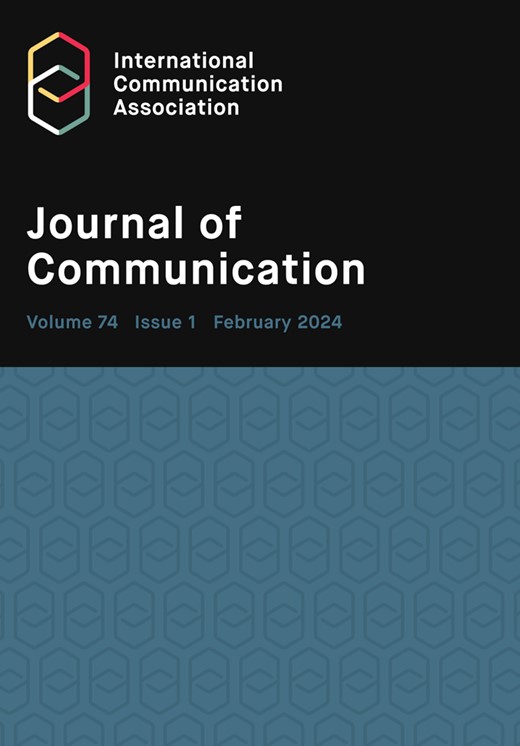Researcher risks: a typology for qualitative risks to researchers in communication studies
IF 5.5
1区 文学
Q1 COMMUNICATION
引用次数: 0
Abstract
Discussions of risk in qualitative research tend to focus on risks to research participants. However, qualitative researchers also face risks—or uncertainties with potential for harm—because they serve as the research instrument. Communication researchers are uniquely suited to problematize the meaning of risk and extend theory about what risk is by noting that risk is subjective and communicatively constructed, both in qualitative methods and in research contexts. We create a typology of five risk contexts that pose a danger to researchers: crisis, disruptive, vulnerable, emotionally risky, and ethically fraught contexts. For each context, we define the risk, propose representative examples, and critically discuss proposed coping strategies. By doing so, we make three key contributions to scholarship on qualitative methods in communication research: (1) we explore how communication concepts of temporality, care, and resilience can be extended via discussion of researcher risks; (2) we show that researcher risk is ongoing, fluid, and constantly evolving; and (3) we argue that risk management strategies must include collective support that embraces the extended temporality of researcher risk.研究者风险:传播学研究中研究者的定性风险类型
在定性研究中对风险的讨论往往集中在研究参与者的风险上。然而,定性研究人员也面临着风险——或有潜在危害的不确定性——因为他们是研究工具。传播学研究人员特别适合将风险的含义问题化,并通过注意到风险是主观的,在定性方法和研究背景中都是由沟通构建的,从而扩展关于风险是什么的理论。我们创建了对研究人员构成危险的五种风险环境的类型学:危机,破坏性,脆弱,情感风险和伦理充满风险的环境。对于每种情况,我们定义了风险,提出了代表性的例子,并批判性地讨论了提出的应对策略。通过这样做,我们为传播研究中的定性方法做出了三个关键贡献:(1)我们探索了如何通过讨论研究者风险来扩展传播的暂时性、关怀和弹性概念;(2)研究人员的风险是持续的、流动的、不断演变的;(3)我们认为,风险管理策略必须包括集体支持,包括研究人员风险的延长时间。
本文章由计算机程序翻译,如有差异,请以英文原文为准。
求助全文
约1分钟内获得全文
求助全文
来源期刊

Journal of Communication
COMMUNICATION-
CiteScore
11.60
自引率
5.10%
发文量
41
期刊介绍:
The Journal of Communication, the flagship journal of the International Communication Association, is a vital publication for communication specialists and policymakers alike. Focusing on communication research, practice, policy, and theory, it delivers the latest and most significant findings in communication studies. The journal also includes an extensive book review section and symposia of selected studies on current issues. JoC publishes top-quality scholarship on all aspects of communication, with a particular interest in research that transcends disciplinary and sub-field boundaries.
 求助内容:
求助内容: 应助结果提醒方式:
应助结果提醒方式:


